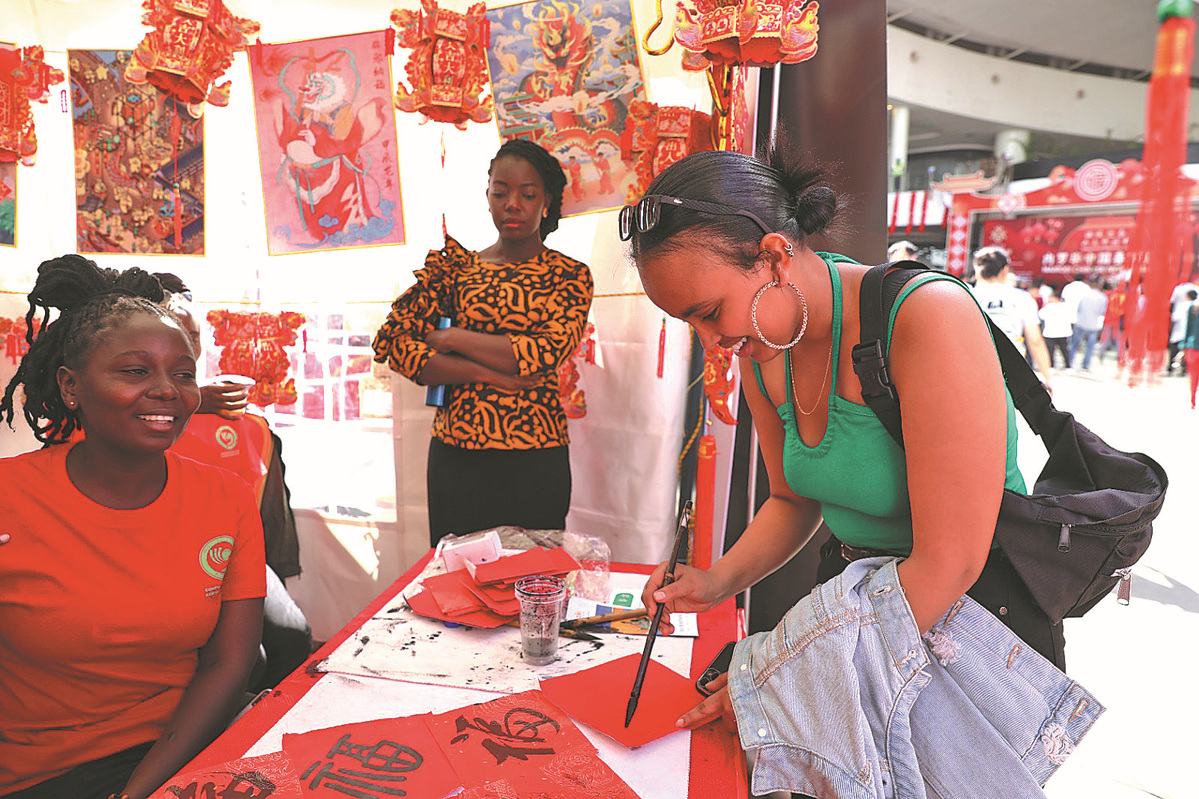Learning Chinese is to promote humanism


The World Chinese Language Conference, held in Beijing from Nov 15 to 17, chose four "I's"-Interconnection, Integration, Inheritance and Innovation — as its motto. The four I's aptly reflect the hopes language educators throughout the world have and the challenges they face: when teaching a foreign language to the youth, you help them to connect with people from a different sociocultural background, merge linguistic skills with cultural awareness, and strive to strike a balance between the stress on the value of tradition and innovation and boldness in teaching methods.
However, a fifth "I" seemed to have found its way into the corridors of the conference venue: Intelligence, artificial intelligence, to be precise. AI is the biggest challenge people teaching foreign languages face. For sure, AI also offers advantages. For example, thanks to AI, we can now easily decipher documents written in languages that we don't know or ignore, and understand many words pronounced in speeches which earlier we couldn't.
Besides, the tools for doing so are becoming increasingly reliable, even if much is lost in (AI) translation. However, these advantages are starting to trigger a crisis in the foreign language-teaching sector. Why bother to learn another language — a long and painful endeavor — if machines can master the work entrusted in the past to interpreters and translators?
The stress on cultural transmission which the World Chinese Language Conference took care to maintain partly answers the question. Learning a new language goes far beyond mastering syntactic and lexical knowledge. It is about entering a new world. It means to escape from our native tongue and comprehend the most basic realities through a new prism.
For example, the division among colors differs slightly from one group of languages to another, which means that language learning affects even our sense of vision. Or grammatical systems do not divide time among past, future and present through the same categories. They also distinguish in different fashions between what is real and what remains hypothetical.
Each time I learn a new language I acquire a novel understanding of the world — and exchange my cognitive software for a new one. These reasons may not suffice to convince reluctant youngsters to spend time on learning something which AI is now supposed to take care of.
In terms of job opportunities, another advantage of continuing to invest in language learning is that the shift toward AI does not suppress but rather increases the tasks to be performed by translators and interpreters. Freed from the mechanical efforts attached to translating, language experts can spend more time working on both accuracy and nuances, which is vital for understanding of culture, bridging the gap between interlocutors by providing background explanations and making different aspects of a given civilization known to the global community, notably through the translation of books. These tasks are not limited to professional interpreters. At different levels and with different levels of depth, these tasks can be performed by people who have invested time, energy and money to learn and appreciate a foreign language.
Although it is still thriving, the learning of Chinese as a global language is threatened not only by the AI phenomenon but also, at least in some regions of the world, by the fast-changing international landscape and rising geopolitical tensions. Suppose an entire generation in the West were to relinquish the study of Chinese, the lack of experts in intercultural communication will very soon be acutely felt, and we will eventually be back to the dire situation experienced 50-60 years ago. Linguistic skills and cultural understanding are quick to dissolve and easy to undermine. They take much time to rebuild.
This is the reason why the stress put by the World Chinese Language Conference on tradition and cultural skills is welcome. Learning Chinese means familiarizing oneself with stories passed down from one generation to another, with poems, proverbs and songs, with wisdom lessons strikingly expressed in the Four Classics.
You can translate an engineering textbook through AI (though beware of the automated errors that could be introduced in the text) but you cannot understand the teaching of Confucius or Laozi through software. You need to appreciate the Chinese language and life lessons by following the tempo of a hiker going through a stunning mountainous landscape. The variegated splendors shaped by cultures, particularly by Chinese culture, will then shine in your eyes.
As a sinologist, I acquainted myself with the Chinese language and tradition first through the study of ancient texts and their lexicons. What I discovered in these materials was both challenged and made vivid by long-term immersion into Chinese communities, in far-away mountains as well as in megalopolises.
Teaching comparative philosophy, I am convinced that to ensure Chinese thought is considered in all settings as an essential component of world philosophy, linguistic skills need to be further nurtured and developed. The process is reciprocal: Chinese students should be encouraged to appreciate the variety and richness of the languages that together compose the choir of our shared humanity, while all the regions of the world need to welcome the teaching of the Chinese language and culture for fostering global humanism — global humanism being the cultural resource of which the world today is most in need.

The views don't necessarily reflect those of China Daily.
If you have a specific expertise, or would like to share your thought about our stories, then send us your writings at opinion@chinadaily.com.cn, and comment@chinadaily.com.cn.


































